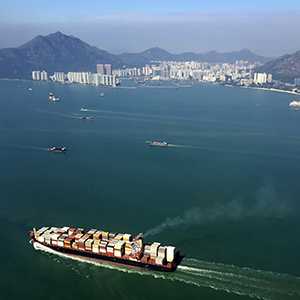This is one of those scenario’s we see all the time:
Asia Customs Broker: Hello, Mr. Ahmad, we are sorry. The customs manual documentation cannot be completed because we are missing the HS codes. Can you provide us with the correct one so that we can proceed with the permit application and import declaration, please?
Logistics Employee: Can’t you check our previous shipments? This is not the first time we have imported similar materials into our warehouse! You should have all the details!
Asia Customs Broker: I am so sorry sir, the regulations were just updated recently and the product code doesn’t exist in the list you provided to us. We might need you to provide us with more information about the product. However, if you feel that I can use any one of the HS codes from the list, I will continue to copy from the old list and process the application.
Logistics Employee: It should be ok. Just get it done so that we will not pay any additional storage costs.
Harmonized Commodity Description and Coding System, or better known as HS Codes, is a multipurpose international product nomenclature developed by the World Customs Organization. It is used by customs agencies to identify the products that are imported or exported and to determine how much duties or taxes should be paid by traders. HS Codes can also be used by customs and controlling agencies, as a guide, to identify if the products would require any special licenses. For example, strategic goods, or health and environmental related licenses. These HS Codes can also provide the country with useful trade statistics.
How does it affect you? It is the legal responsibility of the importer/exporter to declare the correct HS Codes. In most Asian countries, the legal liability sits solely with the importer; not with the customs broker. HS Codes are double edged sword. They can help you save extra money, or make you bleed unnecessarily. Incorrect HS codes used may result in over or underpayment of duties and taxes. Underpayment of duties may be seen as duty evasion and may result in huge fines or/and penalties. Overpayment can have a financial impact on the organization.
If you are utilizing benefits from special programs like VAT refund (China), and you have declared the wrong HS Code, you will end up with a huge claw back on those duties or taxes that you thought you have saved.
There is also the Free Trade Agreements (FTA). If you didn’t get the classification of the raw materials correctly done, you might have just missed the change in tariff (or incorrectly thought a change occurred), where it could help you save your dollars for every shipment. In many countries, there are safety standards or reporting requirements by the domestic controlling agencies, which may be determined by HS Codes declaration. You will be responsible for the costs when the shipment gets seized due to missing licenses. You will be really lucky to get away with no costs or penalty!
One important point worth mentioning is, customs brokers have very limited liability. This means, as the importer or exporter, you have to understand the requirements and regulations on how to classify your products. You need to have proper documentation for all the products that you classify and how you classify them.
If your broker makes a mistake, customs will hold you responsible for it, not your brokers.
After all the emphasis, I hope it provided you with a strong understanding on how important HS Codes is for all your international trade transactions. If you have been using the wrong HS Codes, it is not too late to fix your mistake and avoid costly fines and penalties.
Let us take care of the details!
![]()
 |






